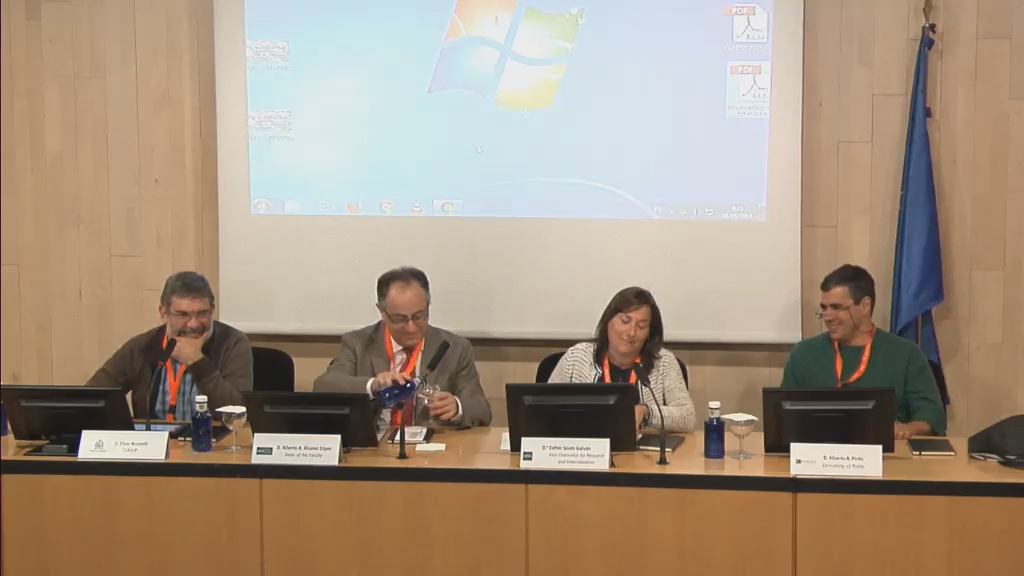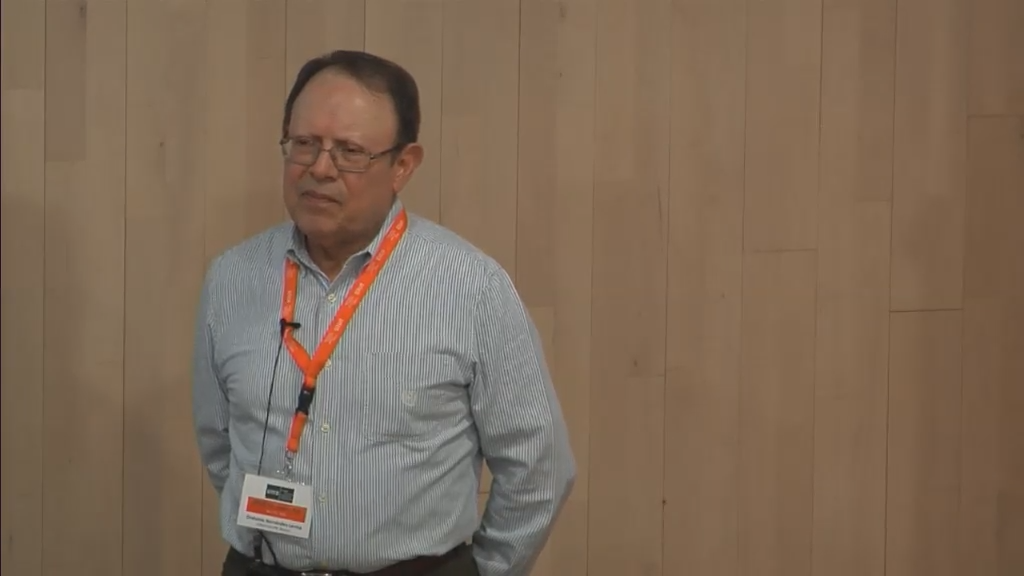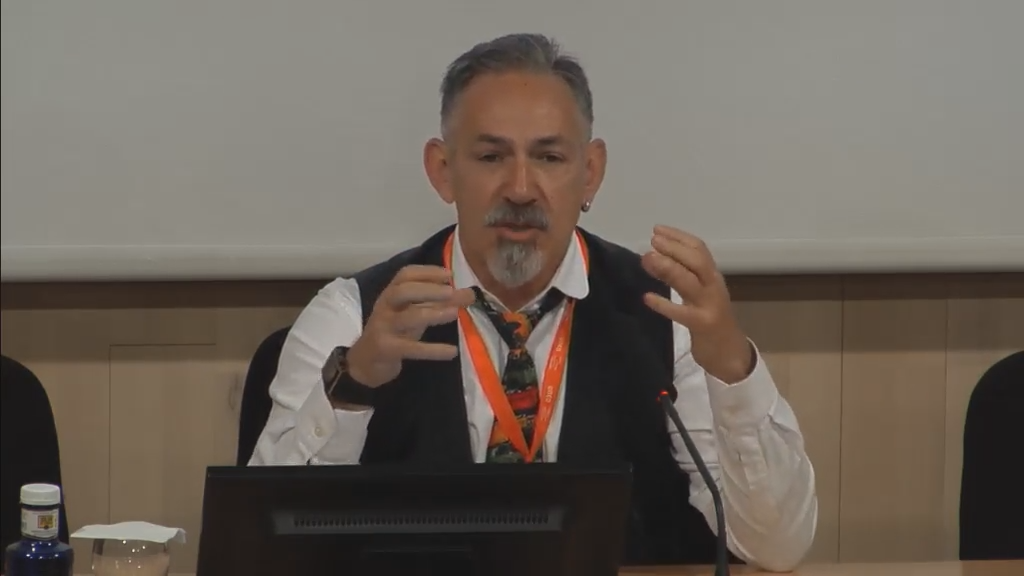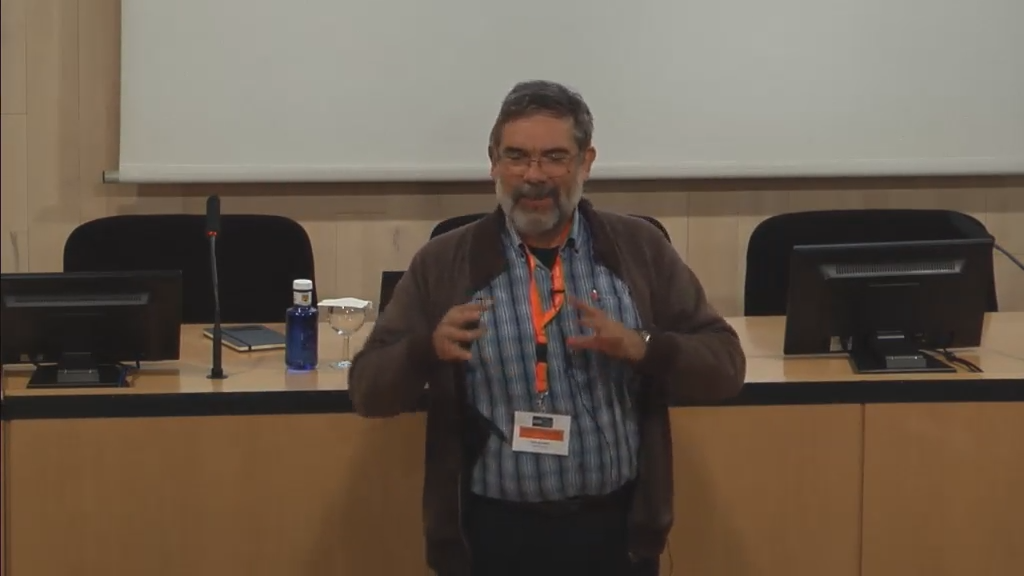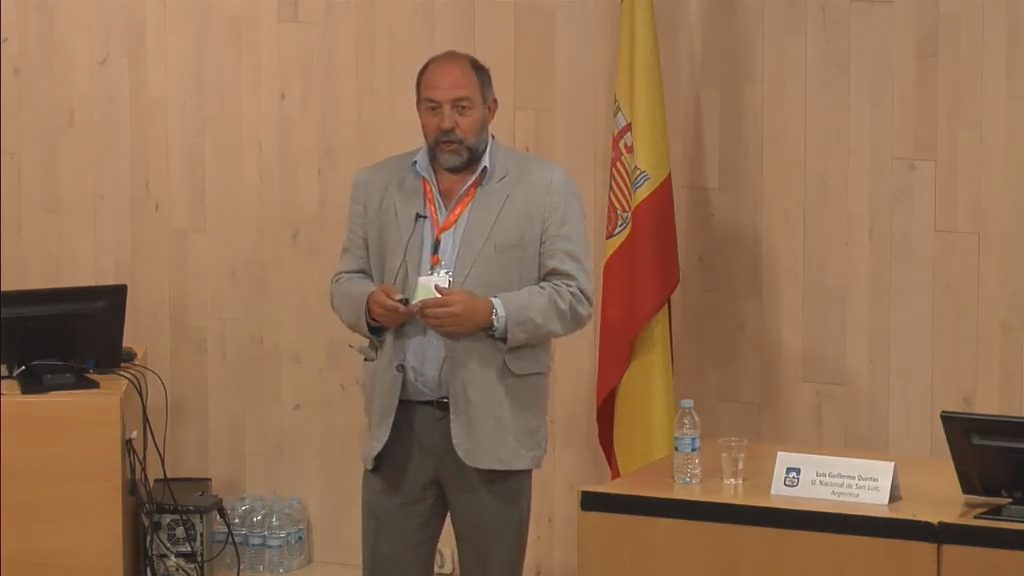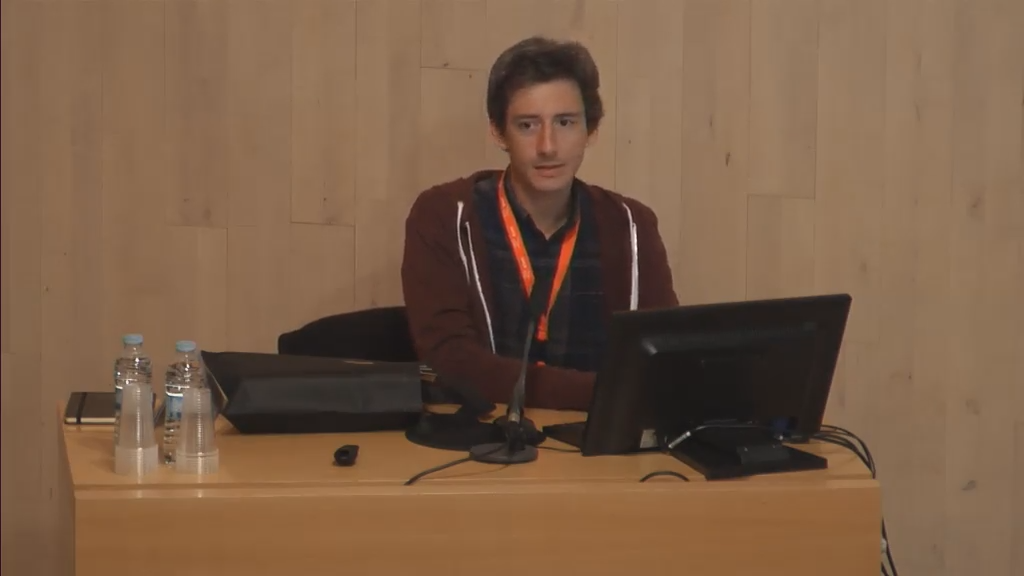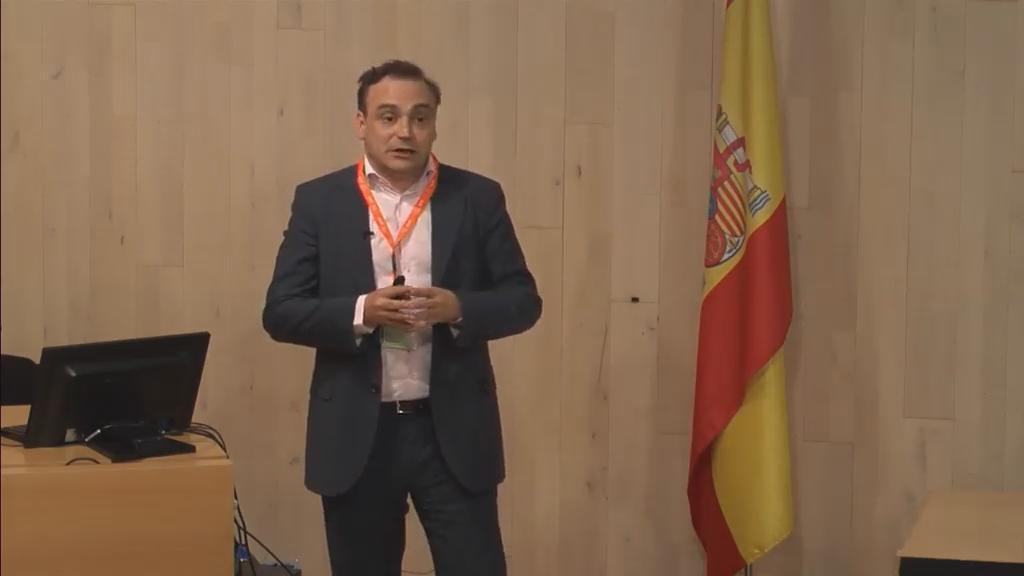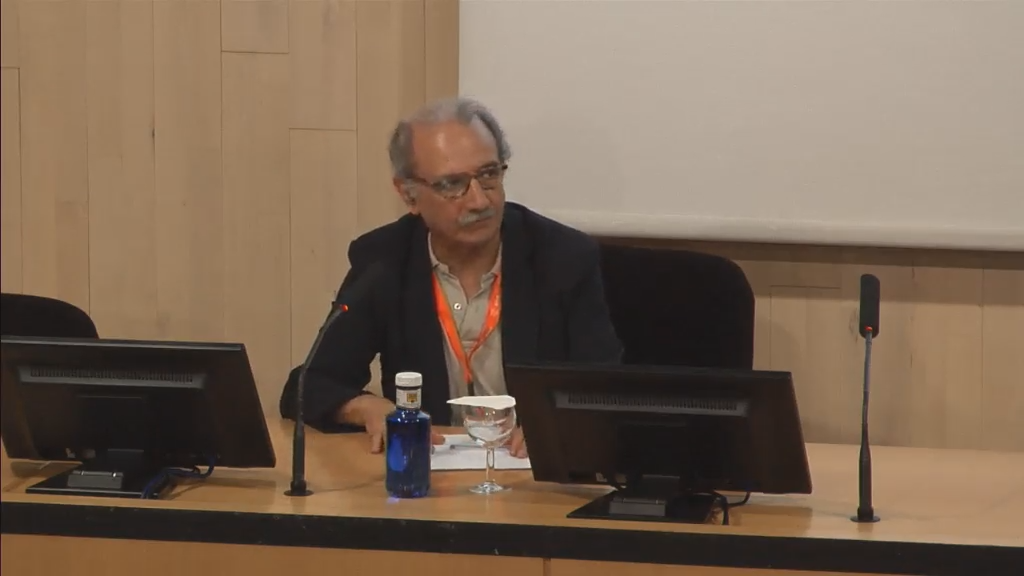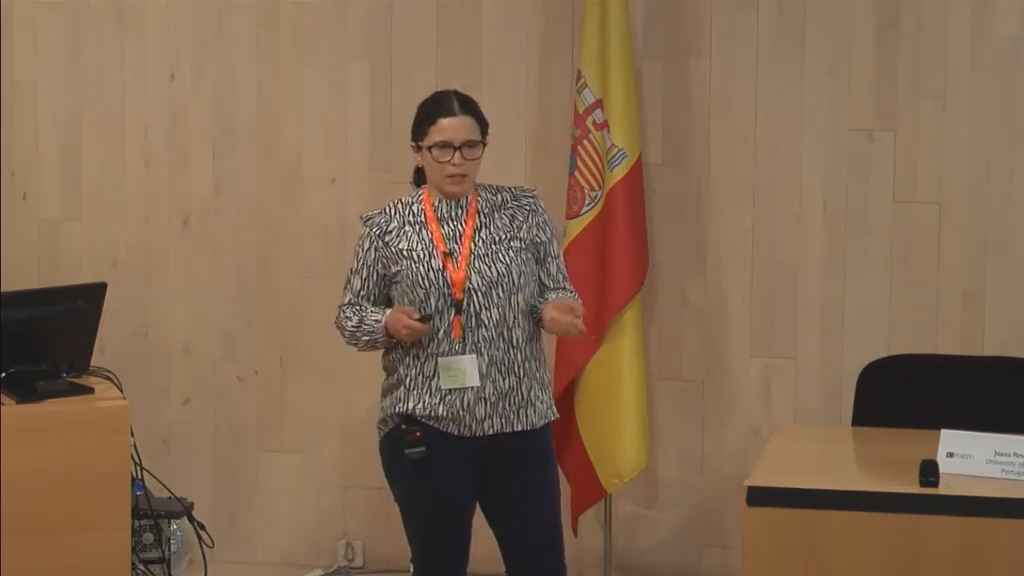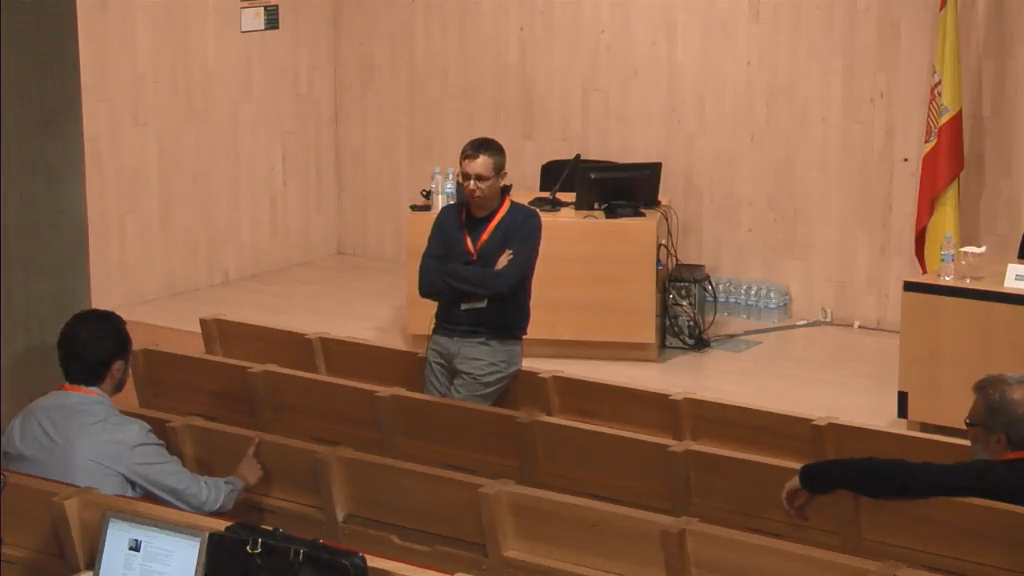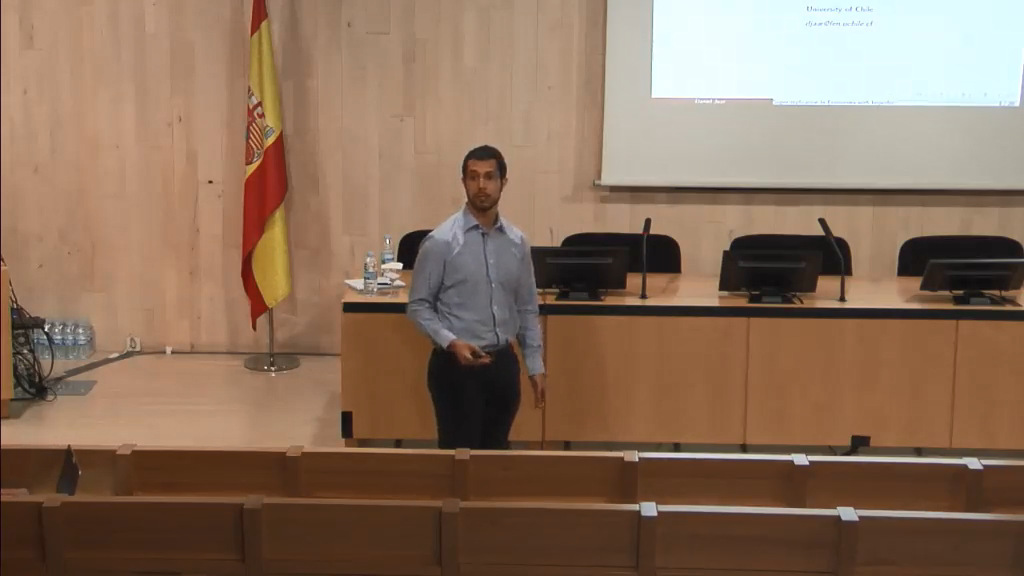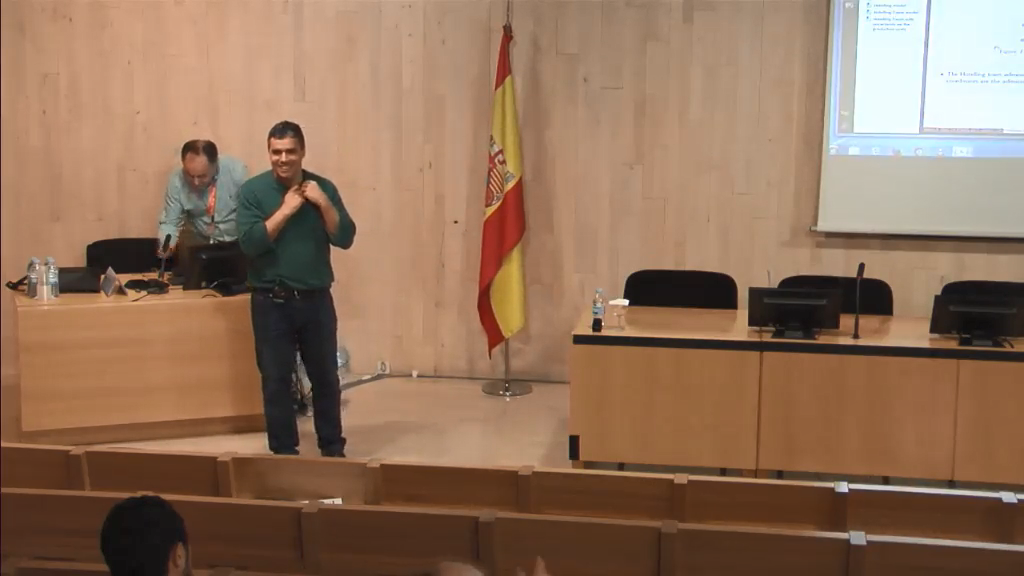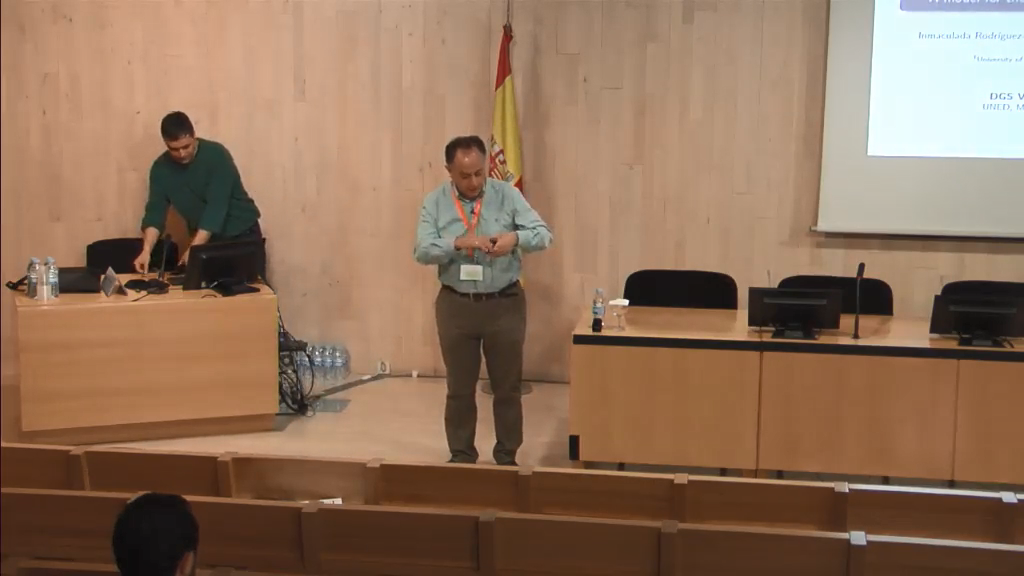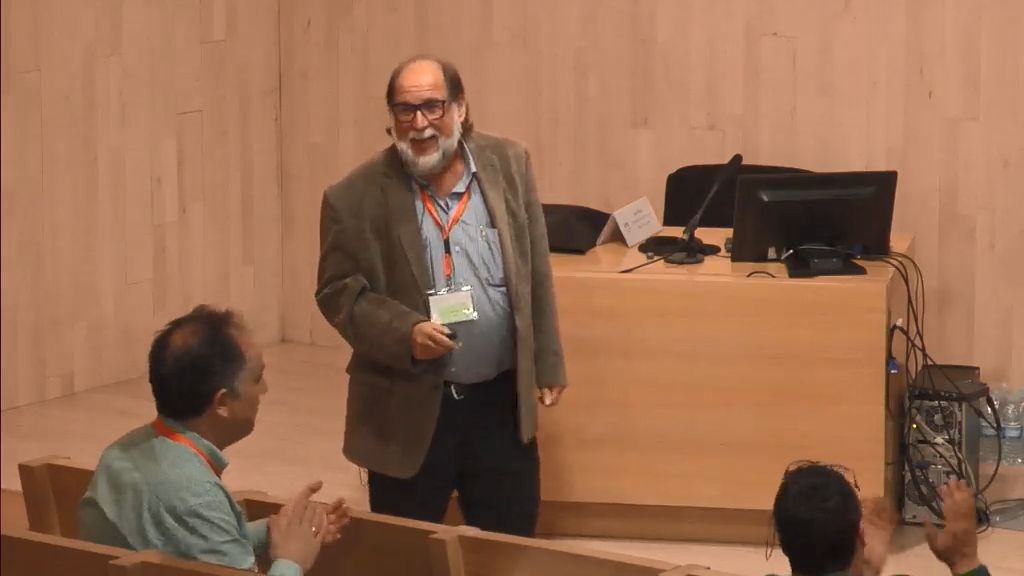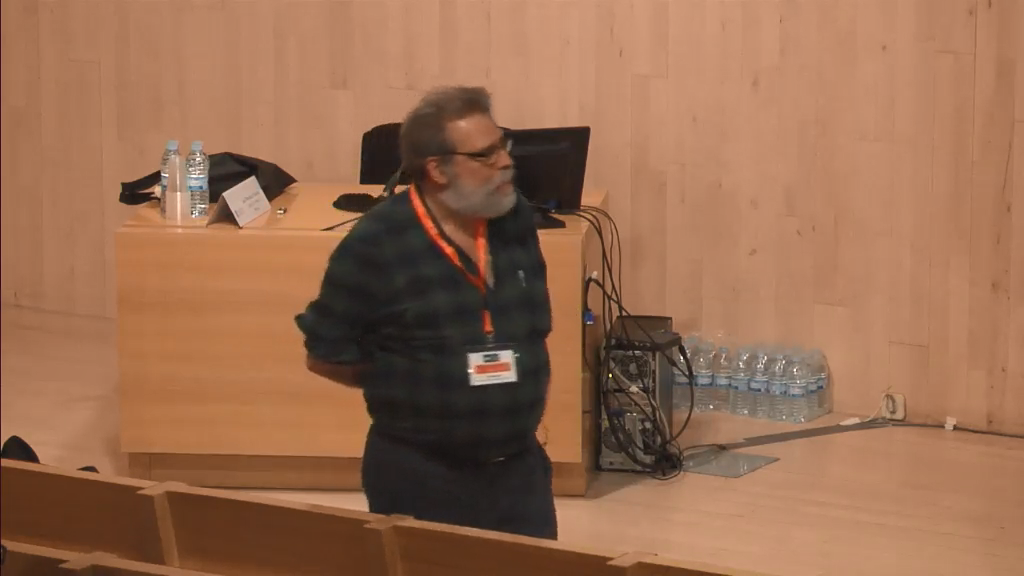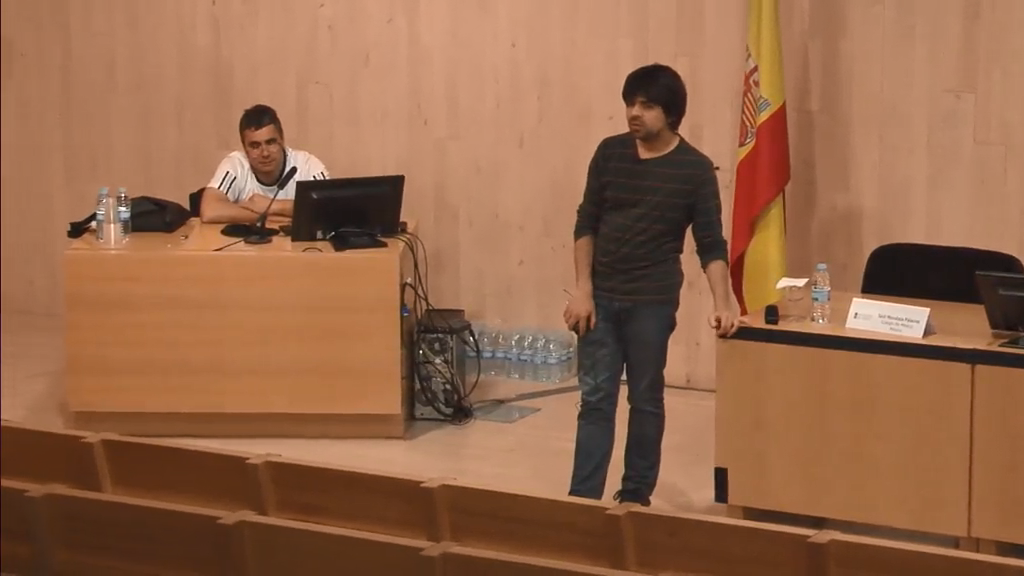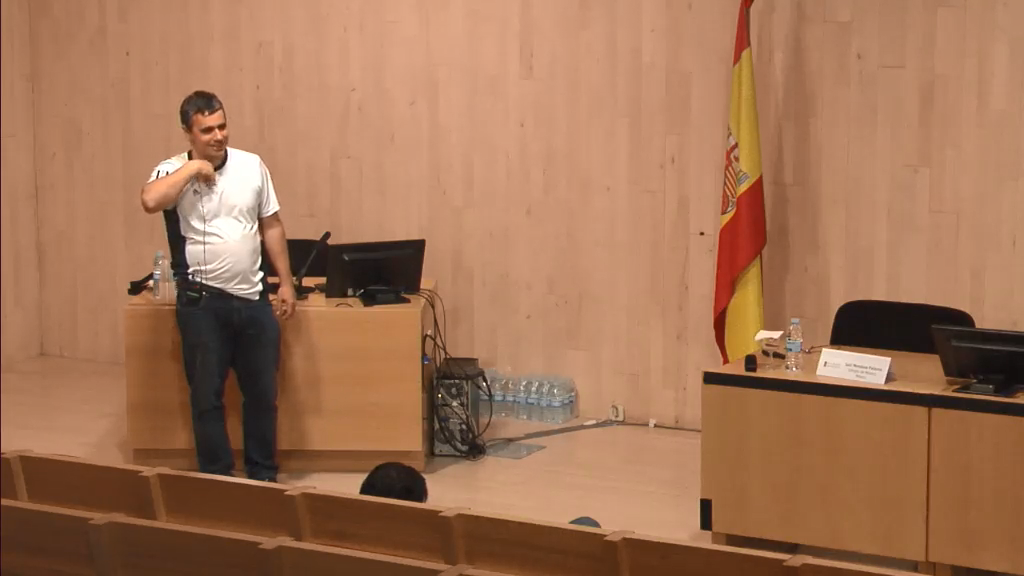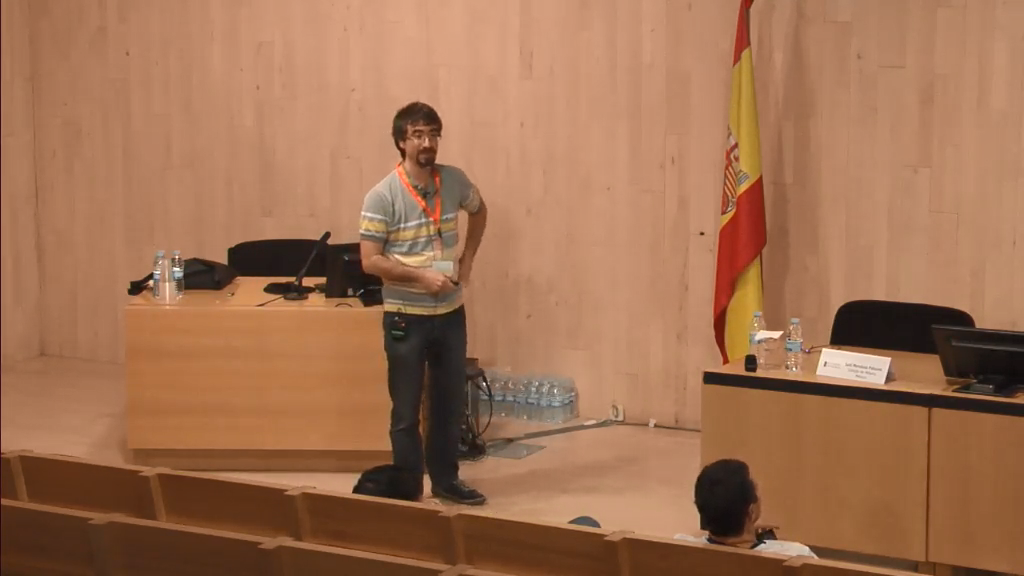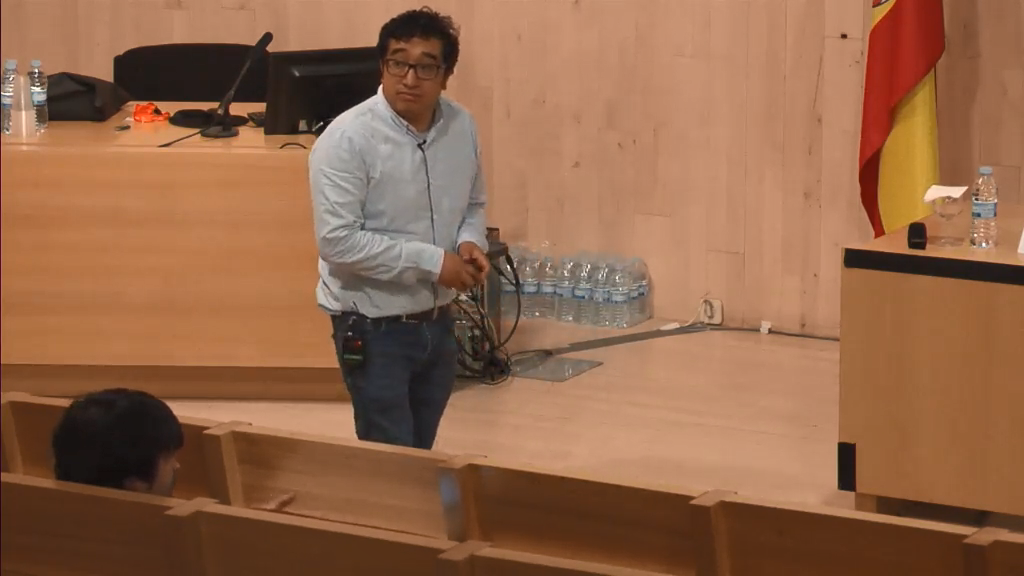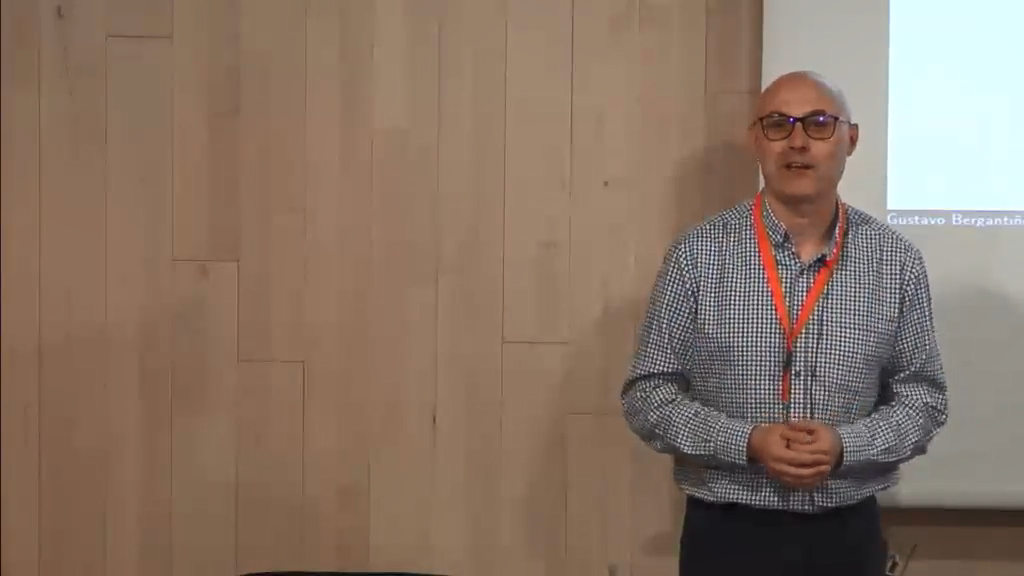Quantifying Information in Repeated Coordination Games
Coordination games are of interest on several areas of economics as production [2], search [3], public goods provision [6] and fundraising [6,7]. Many experiments have emphasized the role that 12 communication among agents plays to achieve an equilibrium. However, some experimental results were surprising [4,5], since the equilibria the agents reached were usually Pareto‐dominated. By using methods borrowed from information theory [9] and physics [8,1] we will demonstrate that even if each agent receives the same message, the information conveyed by it depends in the action played by the agent. Thus, some
agents receive more information than others and this asymmetry can explain the observed results. Finally, to test this hypothesis, we propose a modification of a classical experiment, trying to induce coordination in the Pareto‐dominant equilibrium.
Eduardo Oliva Universidad Politécnica de Madrid









